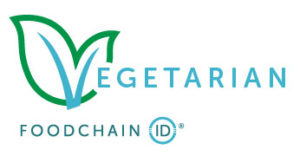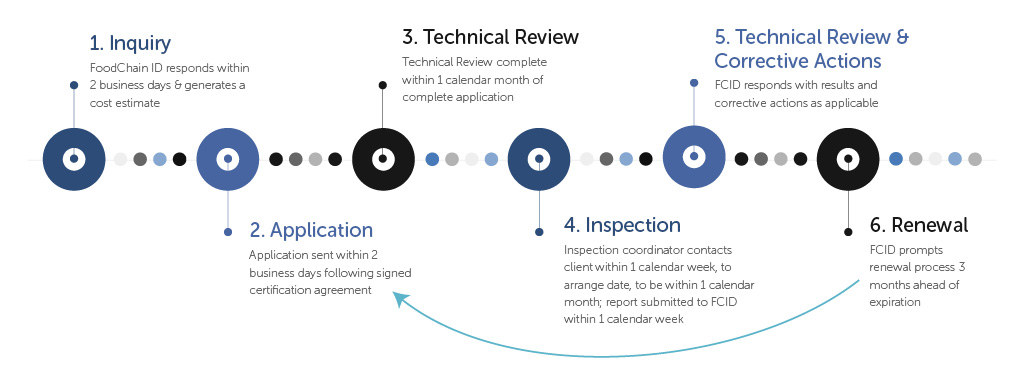This FoodChain ID Global Standard has been developed in response to a shift in consumer purchasing behavior resulting in the rapidly growing demand for plant-based products. There are many nov el plant-based products in the market, and the industry has been challenged with meeting consumer demands while also protecting brand reputation and mitigating risk.
el plant-based products in the market, and the industry has been challenged with meeting consumer demands while also protecting brand reputation and mitigating risk.
The more complex the product the harder it is for animal and animal substances presence to be detected. The list of ingredients required on the label entails the use of very technical terms, not very understandable and written in small letters. For all other non-food products, the law does not include any obligation to indicate the animal origin of materials and substances used in manufacturing.
A certifications pioneer for 33 years, FoodChain ID is a global leader in organic certification having certified over 14,000 organic operations (including over 1000 USDA NOP operations), and more than 2500 non-GMO operations worldwide. We also offer other specialty certifications such as gluten-free, U.S. Hemp Authority, as well as a variety of food safety and GMP programs.
For all certification categories under this Standard:
- Use of GMOs is not allowed. If a company wants to claim no GMOs, FoodChain ID can certify them through another Non-GMO program.
- Segregation and identity preservation must be maintained for all ingredients used in certified production
- Traceability of products and ingredients back to source is required for all certified goods.
The use of milk, eggs, honey is permitted provided they are produced on farms that comply with applicable animal welfare standards, law or best practice.
Excludes:
- meat, poultry, fish, seafood;
- products/ingredients derived from meat or bones, animal fats, gelling agents of animal origin
- cheese produced with rennet coming from veal or other animals
- filtration aids with gelatin, egg white, fish glue or exoskeleton derived from shells or crabs
The use throughout the production process of any ingredient/adjuvant/processing aid of animal origin is not permitted. Nor can any animal substance be used indirectly in the production process, as an additive or processing aid.
In addition to the requirements of the plant-based products, the following ethical requirements apply for vegan products:
- The Brand Owner and/or the Company legally responsible of food labeling must neither conduct nor commission vivisection or testing on any animal, nor of the ingredients or inputs and processing aids used.
- The claim Vegan implies that animals have not been involved in any phase of manufacturing, preparation, treatment or placing on the market. For example, glues used in packaging may not be derived from animals.

- We respond within 2 business days of an inquiry and generate a cost estimate based on information obtained about your site.
- An application and service agreement are sent out within 2 business days. Once returned, forms are provided for you to complete to describe your operation. Once submitted we review your materials within one month.
- Upon approval of your submitted information, your file will either be sent to inspection or to final review depending on the risk assessment of your operation. A FoodChain ID representative will reach out to you within a week to begin the process of scheduling your inspection.
- After the inspection is complete, your inspector will return his/her report to FCID (in 7 days) and we will review and issue a certification decision.
- The yearly renewal process is initiated via a communication sent to you 3 months prior to your previous year’s inspection to give you adequate time to comply.
This FoodChainID Global Standard has been developed in response to a shift in consumer purchasing behavior resulting in the rapidly growing demand for plant-based products. Plant-based products are relatively novel, and the industry has been challenged with meeting consumer demands while also protecting brand reputation and mitigating risk.
Even in cosmetics it is possible to use animal or animal substances such as: placenta, cochineal, silk, etc. Also in these cases such ingredients’ presence can be difficult to detect because the list of ingredients required on the label entails the use of very technical terms, not very understandable and written in small letters. For all other non-food products, the law does not include any obligation to indicate the materials and substances used in manufacturing.
You can download a copy of the FoodChain ID Vegetarian, Plant-Based and Vegan Product Global Standard [ddownload id=”6472″]
Is governed by FoodChain ID. Labeling requirements will be shared with customers as is necessary.
FoodChain ID will provide a custom quote based on your operation type, number and type of products you are looking to verify number and location of facilities, and your inspection timeline. Please contact sales@foodchainid.com if you are interested in a custom quote.
The following key pieces of information will be requested as part of your application:
- A list of all products request for certification
- Drafts/proofs of product labels.
- Specifications of all ingredients, additives, and processing aids used to make certified products
- A process flow description and related quality control measures
Consider what other certification or quality programs you already operate. There may exist overlap or synergies between those and the FoodChain ID Vegetarian, Plant-Based and Vegan Standard requirements, enabling you to gain efficiencies across programs.


 Vegan com
Vegan com 
